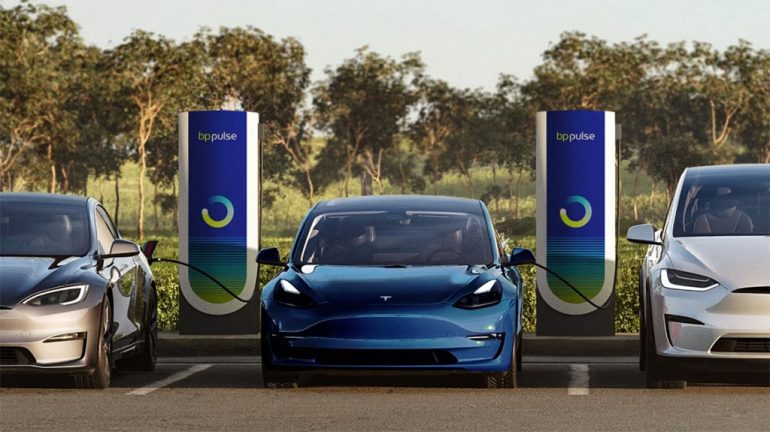
In the efforts to expend the electric vehicle (EV) charging industry, BP’s EV charger unit has made a considerable $100 million order for Tesla’s ultra-fast charging units. This marks the first instance of Tesla’s chargers being deployed on an independent network, and it underscores the evolving landscape of electric vehicle infrastructure in the United States.
This multimillion-dollar acquisition is a vital component of BP Pulse’s comprehensive strategy, which involves investing up to $1 billion in charging station infrastructure across the United States by 2030. The move also presents an exciting opportunity for Tesla, the leading player in the electric vehicle market, to diversify its revenue streams.
Also, don’t forget that you can get discounted new car pricing with a free quote through qualified local dealer partners.
Rebecca Tinucci, Tesla’s senior director for charging infrastructure, acknowledged the significance of this step, stating, “Selling our fast-charging hardware is a new step for us, and one we’re looking to expand.” This partnership sets the stage for Tesla to extend its footprint in the EV charging market.
BP has announced its plans to introduce these Tesla chargers as early as 2024 at various BP-branded locations, including Travel Centers of America and Amoco. Moreover, BP intends to extend its reach through partnerships with third-party entities, such as rental car giant Hertz, which has its own agreement to procure Tesla vehicles for its fleet.
The initial rollout will commence in key urban centers, including Houston, Phoenix, Los Angeles, Chicago, and Washington, demonstrating BP’s commitment to enhancing the accessibility of EV charging infrastructure in densely populated areas.
The 250-kilowatt BP Pulse-branded chargers stand out for their compatibility with both Tesla’s North American Charging Standard (NACS) and the Combined Charging System (CCS) connectors. This versatility ensures that not only Tesla owners but also drivers of electric vehicles from other manufacturers can utilize these chargers, thereby promoting cross-compatibility.
The automotive industry has been witnessing a notable trend towards the adoption of Tesla’s NACS. As more automakers gravitate towards this standard, Tesla’s superchargers are inching closer to becoming the de facto industry standard, potentially eclipsing the rival CCS standard in the EV charging infrastructure ecosystem.
Source: Reuters